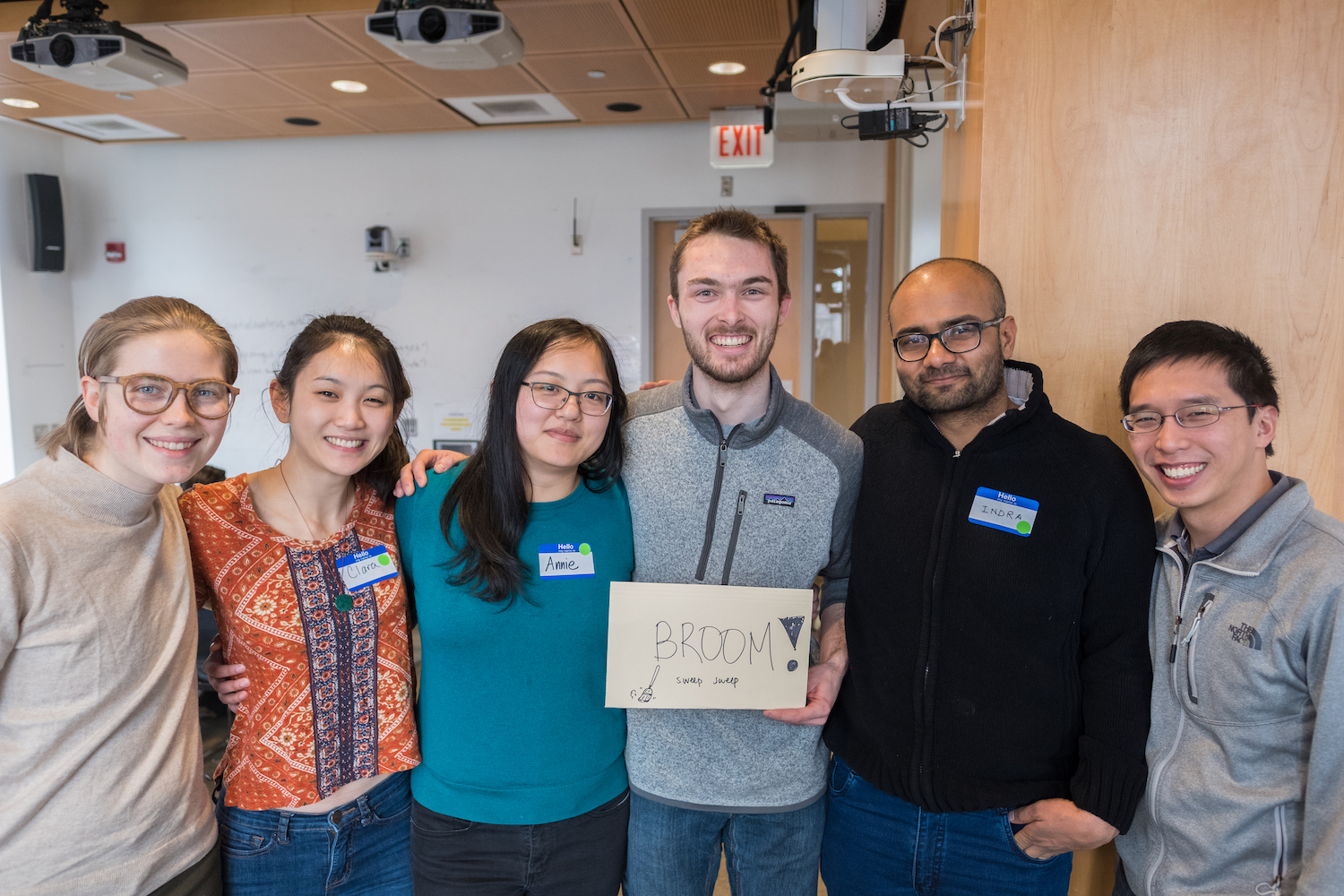A few weeks ago, I left the not-very-balmy climes of Columbus to brave the even-less-balmy climes of Chicago and attend the Chicago R Unconference.1
The Unconference was a wonderfully refreshing experience that I highly recommend if you like R and are looking to get involved in the community or need help jump-starting projects. Here are some thoughts.
What even is an Unconference?
The best description I can think of is that it’s some combination of a “hack-a-thon” and a community building event. But I put “hack-a-thon” in scare quotes because that implies a certain competitiveness and level of technicality that can be intimidating, which the Unconference style is actively not.
The neat thing about the Unconference is that there was such a variety of projects and variety of tasks within each project that everyone could contribute in some way. You could tackle Github issues on mature projects like broom, help build an education package like rlangtip, or if you wanted to go meta, build an Unconference toolbox!
What actually happens?
Before the actual Unconference, we started out with a virtual brainstorming session by creating Github issues. Maintainers would post if they wanted help with their packages, but lots of other people also proposed ideas for new packages. There are a lot of ideas flying around so I think it can be tempting to hold back at this stage of the process, but I really recommend trying to be involved if you can. Even though I didn’t work on anything that I proposed, just going through the process helped me to come up with ideas for projects I want to work on in the future and get feedback about those ideas from people with way more developer experience.
At the actual Unconference, after an intro + icebreakers, we did an overview of the different projects that had come up in the Github issues and people leading those projects would set up in different parts of the room. If you wanted to work on a particular project, you just headed over to that part of the room. You could even work on your own project if you wanted!
As someone with a lot of experience as a user and not so much as a developer, I wanted to get my feet wet with a more mature package where I could work on “beginner-friendly” issues and have someone more experienced to guide me. I decided to help out with broom, since I use it a ton and it literally has issues that are tagged as “beginner-friendly”. Alex Hayes was super patient and helpful and helped many of us get our first pull requests!

The broom team!
You weren’t bound to the project you started with. Many people stayed with the same project but some also moved around. So on the second day I went over to the footrulr team and got to help out and learn a little bit about NLP, but most importantly hang out with even more cool folks!
What do you get out of it?
Easily the best thing about the Unconference was just getting to hang out with a bunch of people who are unabashedly enthusiastic about R and who really care about building the R community in a way that is kind and supportive. There aren’t many R users in my department that I can geek out with, so this was my chance to really soak it all in.2 It was so cool to see such a wide range of backgrounds represented and simultaneously feel like you brought something to the table because of your unique background or skillset. So much credit goes to to the organizers - Angela, Emily, and Alex - for successfully translating the great #rstats online community into an enjoyable and fruitful weekend of learning and collaboration. If you have a chance, DEFINITELY apply!
By the way, if you’re going to take a 10-11 hour bus trip, make sure you’re loaded up on podcasts in case the wifi that was promised doesn’t work.↩
One of my favorite moments was Ben Listyg and I finding out that we watch the Methods Colloquium.↩